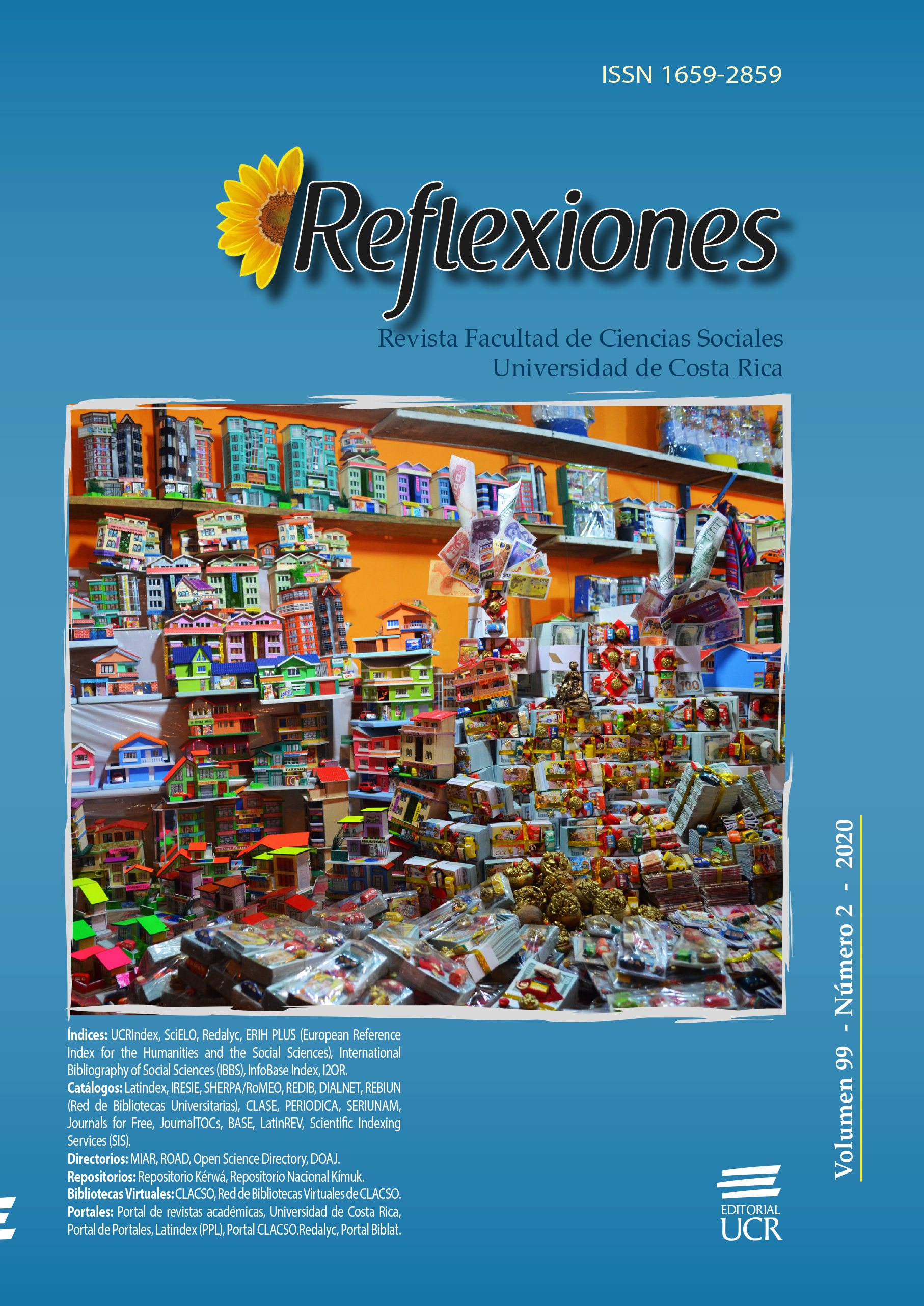Abstract
Introduction
The theme of this article refers to the link established by Albrecht Wellmer, in his book Ethics and Dialogue (1986), between recognition and rationality / faculty of judgment. We consider, as an introduction, that the author's characterization regarding the link between these two concepts, because one of the most significant difficulties of contemporary critical theory is that it has not yet been able to raise –or, at least, it has not been done satisfactorily– an argumentative bridge between the notion of communicative rationality –Habermas– and that of recognition –Honneth–.
Objective
Our main objective is to clarify how Wellmer understands recognition and what is the relationship established between it and the faculty of judgment. To answer the question we will briefly explain, in the first part of the article, some of the central issues raised in the mentioned book.
Method
This will allow us to approach the key point of our discussion, which explains –using the methodology of conceptual reconstruction– the different meanings of the concept of recognition and its links with the faculty of judgment.
Results and conclusion
Although the results of the exhibition at this point are not definitive, we conclude that they enable a promising line for future research.
References
Abril, Francisco. 2015. «Dominación social y reificación en la teoría crítica de Axel Honneth». En Dalle, Pablo y Nosetto, Luciano (eds.). Prácticas del oficio: artículos seleccionados de las VII Jornadas de Jóvenes Investigadores del Instituto de Investigaciones Gino Germani. Buenos Aires: CLACSO, 219-231
—2016a. Repensar la dominación. Axel Honneth y el legado de la Teoría Crítica. Tesis doctoral inédita. Córdoba: Universidad Nacional de Córdoba, Argentina.
— 2016b. «El problema de la dominación en El derecho de la libertad de Axel Honneth». Revista Pilquen, 1 / 19, 1-12.
de Zan, Julio. 2007. «¿Está agotado el programa de investigación de la Ética discursiva?». En Michelini, Dorando Juan; Maliandi, Ricardo y De Zan, Julio (eds.) 2007. Ética del discurso. Recepción y críticas desde America Latina Río Cuarto: Ediciones ICALA, 13-47.
Fascioli, Ana 2013. Honneth frente a Habermas: confrontaciones sobre la renovación de la Teoría Crítica. Tesis doctoral, Valencia: Universidad de Valencia.
Habermas, Jürgen 1985. Conciencia moral y acción comunicativa, Barcelona: Península, 57-135
Habermas, Jürgen. 1994. Teoría de la acción comunicativa: complementos y estudios previos. Madrid: Cátedra.
Habermas, Jürgen. 2006. La ética del discurso y la cuestión de la verdad, Buenos Aires: Paidós.
Holmes, Pablo. 2008. «As objeções de Albrecht Wellmer à ética do discurso e a filosofia moral fundamentada em uma teoria do reconhecimento social». Trans/Form/Ação 31(1), 177-196.
Honneth, Axel. 1997. La lucha por el reconocimiento. Barcelona: Crítica.
— 2007. Reificación. Buenos Aires: Katz.
— 2009a. Crítica del agravio moral. Buenos Aires: FCE.
— 2009b. Crítica del poder. Madrid: Mínimo tránsito.
— 2009c. Patologías de la razón. Buenos Aires: Katz.
— 2014. El derecho de la libertad. Buenos Aires: Katz.
Kant, Emmanuel.1968. Selected Pre-Critical Writings. Nueva York: Barnes and Noble.
— 1992. Crítica de la facultad de juzgar. Caracas: Monte Avila.
Leyva, Gustavo (coord.). 2005. La teoría crítica y las tareas actuales de la crítica, México: Anthropos.
Pereira, Gustavo. 2010. «Reconocimiento y criterios normativos. Entrevista a Axel Honneth». Andamios 7(13), 323-334.
Robles, Matías Gustavo. 2017. «Juegos de lenguaje y teoría crítica. Sobre la recepción de Wittgenstein en el pensamiento de Albrecht Wellmer». Tópicos. Revista de filosofía (34), 75-94.
Wellmer, Albrecht. 1988. «Intersubjetividad y razón». En León Olivé (comp.), Racionalidad. México: Siglo XXI, 225-266.
— 1994. Ética y diálogo. Elementos del juicio moral en Kant y en la ética del discurso. Barcelona: Anthropos.
— 1996. «Hannah Arendt y el juicio: la doctrina oculta de la razón». En Finales de partida. Valencia: Frónesis, 321-341.
— 2001. «Razón, utopía y la dialéctica de la ilustración». En AAVV 2001. Habermas y la modernidad. Madrid: Cátedra, 65-110.


